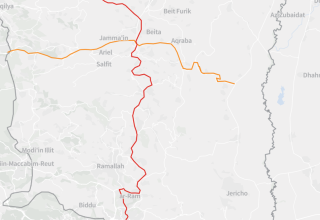
LONDON: Environmentalists faced major blows this week. In a move mirroring a plot-line in HBO drama Succession, major oil and gas giant Shell is suing the environmental charity group Greenpeace; the world is set to double its oil production therefore making it unable to meet its 2030 net zero goals; and the European Union is watering down its combustion engine rules.
Recalling the events of satirical drama Succession, the character Greg Hirsch sued the charity after his grandfather left his entire fortune to Greenpeace and denied him a significant inheritance. Click here for a clip of the moment he informs some guests at a party of his intentions.
Moving from fictional satire to real-world proceedings, Shell’s lawsuit is related to an incident in January when Greenpeace activists boarded one of Shell’s oil production vessels near the Canary Islands off the Atlantic coast of northern Africa to protest oil drilling and traveled on it as far as Norway.
The oil conglomerate filed the claim in London’s High Court and is seeking $2.1 million in damages. In an email to Reuters, Shell confirmed legal proceedings were taking place when asked whether it was suing Greenpeace over the incident but declined to comment on the claim amounts.
Protests at sea against oil, gas or mining infrastructure have long been part of Greenpeace’s operations. The group said Shell offered to reduce its damage claim to $1.4 million if Greenpeace’s activists agreed not to protest again at any of Shell’s oil and gas infrastructure at sea or in port.
Greenpeace said it would only do so if Shell complied with a 2021 Dutch court order to cut its emissions by 45% by 2030, which Shell has appealed.
In keeping with the topic of oil and gas, global fossil fuel production in 2030 is set to be more than double the level deemed consistent with meeting climate goals set under the 2015 Paris climate agreement, according to researchers at the United Nations Environment Programme (UNEP). Plus, the new European Union pollution rules for combustion engine cars and trucks are set to be less ambitious than originally planned, after lawmakers voted to delay and weaken some of the regulations. ‑Reuters








